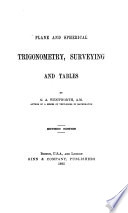 | George Albert Wentworth - Surveying - 1895 - 422 pages
...Logarithms. Any positive number being selected as a base, the logarithm of any other positive number is the exponent of the power to which the base must be raised to produce the given number. Thus, if a" = N, then n = loga.Zv". This is read, я is equal to log.V to... | |
 | George Albert Wentworth - Trigonometry - 1896 - 344 pages
...Logarithms. Any positive number being selected as a base, the logarithm of any other positive number is the exponent of the power to which the base must be raised to produce the given number. Thus, 11 os = N, then n = logaN. This is read, и is equal to log N to the... | |
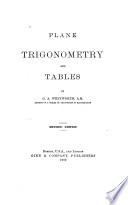 | George Albert Wentworth - Plane trigonometry - 1896 - 272 pages
...Logarithms. Any positive number being selected as a base, the logarithm of any other positive number is the exponent of the power to which the base must be raised to produce the given number. Thus, if o" = N, then n = \ogaN. This is read, n is equal to log N to the... | |
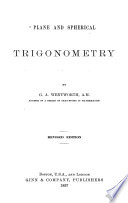 | George Albert Wentworth - Trigonometry - 1897 - 234 pages
...Logarithms. Any positive number being selected as a base, the logarithm of any other positive number is the exponent of the power to which the base must be raised to produce the given number. Thus, if a" = N, then n = \ogaN. This is read, n is equal to log N to the... | |
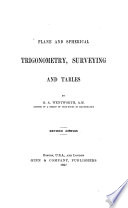 | George Albert Wentworth - Logarithms - 1897 - 384 pages
...Logarithms. Any positive number being selected as a base, the logarithm of any other positive number is the exponent of the power to which the base must be raised to produce the given number. Thus, if a" = N, then n = \ogaN. This is read, n is equal to log N to the... | |
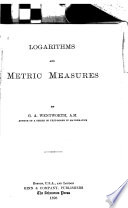 | George Albert Wentworth - 1898 - 112 pages
...referred. The base may have any positive value except unity. The logarithm of a number in any system is the exponent of the power to which the base must be raised to produce that number. Thus, if a is the base, and n and x have such values that a* = x, then, in the... | |
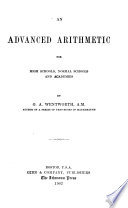 | George Albert Wentworth - 1898 - 424 pages
...without breadth or thickness. Liter. The unit of capacity in the metric system. Logarithm of a number. The exponent of the power to which the base must be raised to obtain the given number. Long division. The method of dividing in which the processes are written in... | |
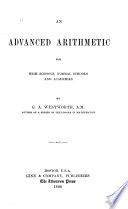 | George Albert Wentworth - Arithmetic - 1898 - 424 pages
...without breadth or thickness. Liter. The unit of capacity in the metric system. Logarithm of a number. The exponent of the power to which the base must be raised to obtain the given number. Long division. The method of dividing in which the processes are written in... | |
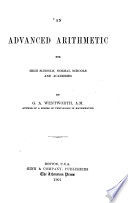 | George Albert Wentworth - Arithmetic - 1898 - 424 pages
...without breadth or thickness. Liter. The unit of capacity in the metric system. Logarithm of a number. The exponent of the power to which the base must be raised to obtain the given number. Long division. The method of dividing in which the processes are written in... | |
 | Benjamin Osgood Peirce - 1899 - 146 pages
...(ab)m = ambm, Hence, (Г71 =—, a° = 1, a1/n = ^. a" Definition; The logarithm of a number, to any base, is the exponent of the power to which the base must be raised to pro duce that number. Thus, if x = Iog0 N, then ax = N. In particular, log 1=0, log (base) = 1. General... | |
| |